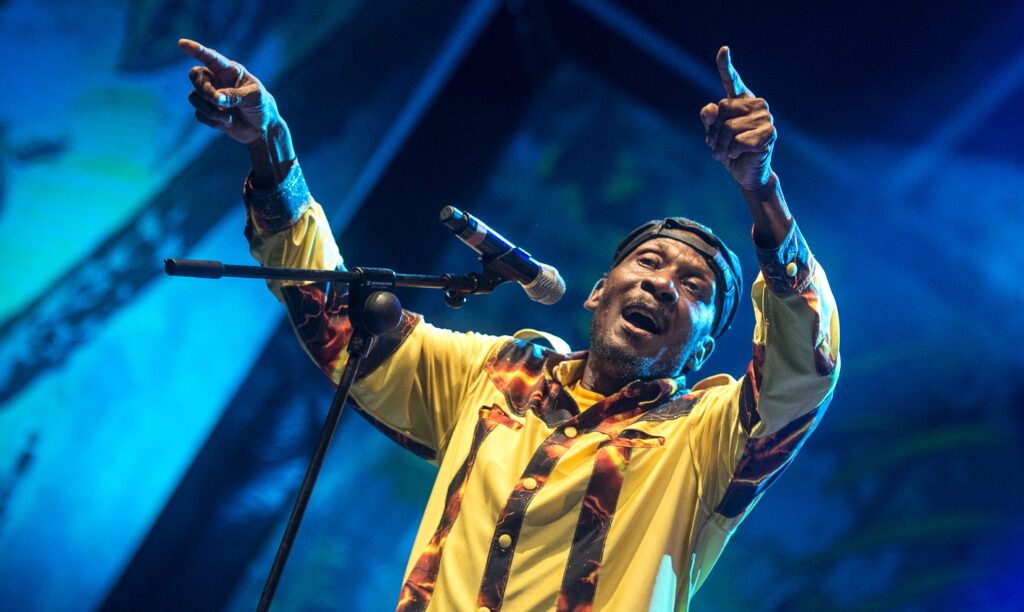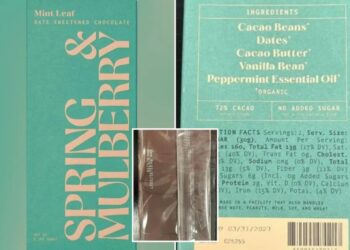Jimmy Cliff, the Jamaican reggae star whose lead role in the 1972 cult-movie sensation “The Harder They Come” helped introduce the pulsating island dance beat to a global audience, has died. He was 81.
The cause was pneumonia following a seizure, said his wife, Latifa Chambers, in an Instagram post on Monday announcing the death.
Mr. Cliff’s recording and performing career spanned seven decades, and he was inducted into the Rock and Roll Hall of Fame in 2010. At the ceremony, Wyclef Jean, a Haitian musician and friend of Mr. Cliff’s, described the singer-songwriter as an inspiration to generations of Caribbean performers, especially those from disadvantaged backgrounds who aspired to international recognition.
Abandoned by his mother soon after he was born, Mr. Cliff left his rural home at 13 and moved to the shantytown slums of Kingston, Jamaica’s capital city, with musical ambitions. He was captivated by the “mento” sounds emanating from private home “sound machines” and makeshift recording studios, and that later flowed into musical tributaries that became labeled variously as ska, rocksteady and reggae.
Throughout his teen years, he was writing songs and performing in talent contests. Backed by noted producers including Leslie Kong and Chris Blackwell, he proved adept at the versatility of the reggae template, which could veer from raw to sensual and was influenced by American soul and calypso.
Mr. Cliff emerged as a hitmaker in Jamaica and made early inroads to exporting the homegrown music to England, the United States and Africa, although he would eventually become overshadowed by his contemporary Bob Marley. “It’s a music of resistance, a need for recognition, identity and respect,” Mr. Cliff later explained of the universal appeal of reggae, which encompassed breezy dance beats and often politically charged lyrics.
Bob Dylan once described Mr. Cliff’s “Vietnam” (1969) as one of the most powerful protest songs of all time. To a jaunty beat, Mr. Cliff sings the word Vietnam 38 times — an insistent word of refrain as he recounts the story of a young soldier who will never come home: “It was just the next day his mother got a telegram, it was addressed from Vietnam … Don’t be alarmed, she told me the telegram said, but Mistress Brown your son is dead.”
Mr. Cliff also had hits with his covers of Cat Stevens’s “Wild World” in 1970 and Johnny Nash’s “I Can See Clearly Now,” which he recorded for the 1993 sports comedy “Cool Runnings” about a Jamaican bobsled team. That soundtrack selection reached No. 18 on the U.S. Billboard Hot 100 and rose to No. 1 in France.
More than any one song, it was a low-budget Jamaican crime drama, “The Harder They Come” (released in the United States in 1973), that carried Mr. Cliff to fame and brought Caribbean music, culture and folklore, as well as the island’s patois, to international prominence.
Mr. Cliff played a young man from the countryside, Ivanhoe Martin, who aspires to a career as a singer but whose encounters with shady music executives and abusive police transform him into a gun-toting, street-savvy desperado.
The depiction of armed resistance against the police in particular made Martin — and hence Mr. Cliff — a hero among poor Jamaicans who were regularly harassed by the authorities for petty offenses. In no small part because of Mr. Cliff’s performance, Marley followed up on that theme with his 1973 song “I Shot the Sheriff.”
“The Harder They Come,” raw and at times exhilarating, became an underdog phenomenon at the Venice Film Festival and rode a quickly rising tide of interest in Jamaican acts such as Marley and the ska and rocksteady group Toots and the Maytals.
Although “The Harder They Come” met with mixed reviews from American critics and was a commercial flop in the United States, it drew a devoted following over the decades at revival houses, film societies and college campuses with its outlaw theme and a soundtrack that included the titular song as well as “You Can Get It If You Really Want” and “Many Rivers to Cross.” All songs were written by Mr. Cliff, and the last was later covered by entertainers as varied as John Lennon, Linda Ronstadt, Bruce Springsteen, Annie Lennox and Cher.
Mr. Cliff’s Martin character shared a name with a real-life Jamaican gangster from the 1940s who had become a folkloric antihero. “When I was a little boy, I used to hear about him as being a bad man,” he told the show-business trade publication Variety. “A real bad man. No one in Jamaica, at that time, had guns. But he had guns and shot a policeman, so he was someone to be feared.
“Well, I may not be a bad man, but I have known a lot of bad men,” Mr. Cliff added. “When I got to Kingston, I was among those types of people a lot. When I was shooting the movie, I even got a chance to speak to them, ask them if they would do what I was doing in the movie … I am a man of peace, but I knew plenty of people who were not.”
Ambition as high as a ‘cliff’
One of 10 siblings, Mr. Cliff was born James Chambers in Somerton, near Montego Bay, on July 30, 1944. His father supplemented his income as a tailor by working as a farm laborer.
By his own description, Mr. Cliff was the star of his church choir and earned money selling newspapers on the street and singing headlines to draw customers until he moved to Kingston.
“I didn’t know what I was supposed to do and I had no future at all,” he told the authors of the 1977 book “Reggae Bloodlines.” “What was I supposed to do with my life? Work in a banana field? Cut cane? I came to Kingston to go to night school and learn a trade, but my intention was to sing because I was always singing good in school.”
He settled in a rough part of the city, called Trench Town, and began playing guitar and hanging around recording studios, usually single rooms with a microphone, a reel-to-reel tape recorder and dozens of ganja-smoking musicians. He gave himself a new identity, choosing the surname Cliff because the geographical feature matched the height of his ambitions.
He entered musical talent contests and wrote a simple rhyming song called “Dearest Beverley” to ingratiate himself with Kong, a Chinese-Jamaican entrepreneur who owned a local hangout and record shop called Beverley’s.
Intrigued by the song’s marketing potential, Kong also saw raw talent in the teenage singer and set up a recording studio to cut more sides by Mr. Cliff. Among their hits were “Hurricane Hattie,”about a major storm that had struck the Caribbean in 1961, “King of Kings” and “Miss Jamaica.” In addition to singing, Mr. Cliff was a musical scout and said he introduced Marley to Kong, who recorded some of Marley’s early cuts.
To promote tourism, the Jamaican government sponsored an international trip in 1964 by Mr. Cliff and other leading cultural figures from the island. Blackwell, the president of Island Records, which had offices in Kingston and London, saw Mr. Cliff on that tour and signed him with the hope of making him a star in England after Blackwell’s star Millie Small had a novelty hit with “My Boy Lollipop.”
Mr. Cliff said he wanted to stay in the United States after playing at the 1964 World’s Fair in New York, but Blackwell argued that he would face less competition in England. Their mutual expectations for stardom went unfulfilled, and Mr. Cliff found himself broke for a time.
The independent-minded Mr. Cliff was never entirely comfortable being pigeonholed as a reggae performer or being too linked to any one producer. “I didn’t really want to be known just as the King of Reggae,” he later told The Washington Post. “I actually wanted to be known as the King of Music!”
During his period of struggle, he wrote the gospel-tinged “Many Rivers to Cross” and “Wonderful World, Beautiful People,” the latter inspired by a visit to Brazil that turned into a year-long stay.
Over the years, he moved around from label to label and experimented with strings and other instrumentation as well as soul and rock sounds, pushing the boundaries of the music. He linked his new musical direction to a lifelong search for spiritual stimulation and a connection to his ancestral roots, during which he experimented at times with the Rastafarian movement, Islam and Christianity.
By the late 1960s, especially after the release of his breakthrough self-titled second album, which featured “Vietnam,” Mr. Cliff was recognized as a rising star. His biggest boost came a few years later when he was cast in “The Harder They Come” after the director, Perry Henzell, reportedly saw his photograph on a record cover and thought Mr. Cliff had the right look for the role.
Mr. Cliff later had a supporting role in “Club Paradise”(1986), a comedy flop starring Robin Williams, Peter O’Toole and Twiggy, but music continued to be almost his entire focus.
In his quest to work in broader styles of music, Mr. Cliff willingly relinquished his reggae crown in the mid-1970s to Marley, whose fiery songs about the poor and oppressed — including “No Woman, No Cry” — entered the pop mainstream and defined the genre for millions of American listeners.
Marley was a charismatic performer whom the Village Voice dubbed the “Jagger of Reggae” and whose dreadlocks and weed-smoking persona made him a style icon depicted on T-shirts in addition to the cover of Rolling Stone magazine.
Only after Marley’s death in 1981, at 36, did Mr. Cliff gradually assert his place as a father of a genre that he never fully abandoned. He won Grammy Awards for best reggae recording for “Cliff Hanger” (1985), which featured Kool and the Gang, and for best reggae album for “Rebirth” (2012). Mr. Cliff remained through recent years a touring act with a passionate following.
He made more than 30 albums in all, including “Refugees”(2022), inspired by humanitarian crises in many parts of the world. It was his first album in more than a decade, and he used the release to promote the United Nations Refugee Agency and denounce what he called racism directed at poor people fleeing misery and corruption.
The tracks of the album, he told the London Independent that year, were about “what’s happening all over the globe, especially in my home country, Africa.”
“Some people don’t like when I say that,” he added, describing himself as part of the African diaspora. “It’s my country. In your ignorance, you’re drawing lines all over the country. That’s so sad.”
Intensely private, Mr. Cliff said little about his personal life. He had several children, including Nabiyah Be, Aken and Lilty. A complete list of survivors was not immediately available.
The popularity of Mr. Cliff’s songs was so great that the sometimes surfaced in unexpected places. In 2007, David Cameron, leader of Britain’s Conservative Party (and later to become prime minister), used “You Can Get It If You Really Want” during campaign rallies.
“I have a dislike for politicians, as they’re not truthful people,” he told Uncut magazine at the time. “So I didn’t like David Cameron using my music, but I didn’t say stop. The opposite side of politics, the Sandinistas in South America, also used that song. But I make my music for people. I looked up the meaning of politics — poli means people, and tics is a bloodsucking parasite.”
The post Jimmy Cliff, Jamaican reggae star with global following, dies at 81 appeared first on Washington Post.




